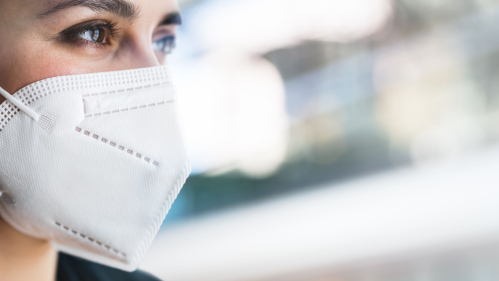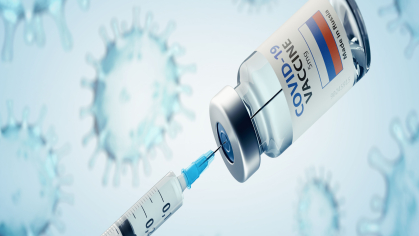How Can I Gather Safely for the Holidays?

Holiday traditions are important for everybody. Leslie M. Kantor, chair of the Department of Urban-Global Public Health at the Rutgers School of Public Health, explains some practical steps that people can use to take care of each other while gathering for holidays.
Is it safe to gather with my family and loved ones this holiday season?
The COVID-19 pandemic is still going on, with infections and hospitalizations on the rise, which isn’t surprising due to an increase in holiday gatherings and colder weather moving people indoors. Omicron – the latest COVID-19 variant – has also been detected in almost every state. While we don’t know much about this new variant, it is clearly spreading far more easily than the original COVID-19 strain, even among those who are vaccinated. The good news is that scientists expect our current COVID-19 vaccines with recommended boosters to protect against severe illness, hospitalizations and deaths due to infection with the Omicron variant.
Individuals planning to attend or host gatherings should remember that there are risks to gathering in person, even when precautions like testing and requiring vaccination are taken. Fortunately, there are things we can all do to reduce those risks.
What can I do to keep my family and community safe?
Ensure attendees have the COVID-19 vaccine plus booster shots: Ensure that those in attendance are fully vaccinated against COVID-19 and have received their booster shots, if eligible. While people are considered fully vaccinated two weeks after their second dose of the Pfizer or Moderna vaccines or two weeks after a single-dose vaccine, such as Johnson & Johnson’s Janssen vaccine, COVID-19 vaccine booster shots are recommended for most people in the United States at this point. Early evidence suggests that vaccines without boosters are much less effective against Omicron. Information on COVID-19 vaccination, booster shots and eligibility can be found here.
Get tested: Test, and ask those gathering, to get a COVID-19 test or conduct an at-home rapid test on the day that people are gathering. Antigen tests–either at a facility or via an at-home test–are good at detecting if you are infectious, e.g., capable of passing an infection on to others. There are a number of at-home tests now on the market and they are often available online from major retail stores or your local pharmacy.
The test to find out if you are actually infected, even if you might not yet be able to pass an infection on to others, is the PCR test. If you are in a high-risk group of any kind–immunocompromised, over age 65–you may want to ask people who are attending your gathering to get a PCR test a few days in advance in addition to testing on the day of the gathering or to test and then ensure that they don’t have any outside of their household contacts.
Get your flu shot: Flu season is here, so it’s important that you get a flu shot. Information on the flu shot is available here.
Wear a mask: People gathering indoors, especially those who are not fully vaccinated and boosted, are over 65, are immunocompromised or have underlying health conditions that make them more likely to experience severe COVID-19 disease or death, should wear a well-fitting mask over their mouth and nose unless everyone at the gathering has tested negative that day. NIOSH approved N95 or KN95 masks are best. Here is a useful video on the importance of mask fit and filtration.
Consider your venue: When planning your gathering, try to use spaces that are outdoors, have ample ventilation and are large enough to accommodate your anticipated guests comfortably, avoiding crowding. In a typical home, opening some windows and doors helps to increase ventilation and can make a meaningful difference.
It’s important to keep a close eye on information on the pandemic, as well as the Omicron and future variants, from reputable sources like the Centers for Disease Control and Prevention, the World Health Organization and state and local departments of health. Here is a link to the CDC’s guidelines for gatherings.
When should I get the booster shot?
ASAP, if you’re eligible. Anyone 16 and older who received Pfizer or Moderna vaccines six months ago or Johnson & Johnson’s Janssen vaccine two months ago is now eligible. Information on the booster, as well as eligibility, can be found here.


